Neck Lift in Tunisia
Search and Compare the Best Clinics and Doctors at the Lowest Prices for Neck Lift in Tunisia
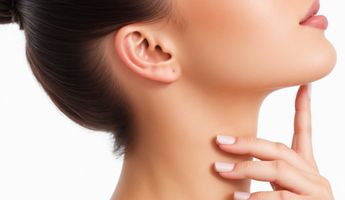
Find the best clinics for Neck Lift in Tunisia
With Medijump you can browse 9 facilities offering Neck Lift procedures in Tunisia. The cheapest price available is $1,067 in Mahdia. And for the cheapest price globally, prices start from in .
Neck Lift in Mahdia
Price: $ 1,067
Neck Lift in Tunis
Price: $ 2,663
From 10 verified reviews
Ahlem Feryel, 01 July 2020
Love one that Lisa advises me to remove face hair
From 4 verified reviews
Samir Derradji, 18 March 2018
Hello I follow sick dalger Algeria I ask you a preforma for an opairation on the colon .Thank you
From 37 verified reviews
Saoussen Saidani, 13 June 2020
My 12 year old daughter Lina has had surgery Pancreas tumorHeavy Operation which went very wellI thank all the staff of the Pasteur clinic for their hospitality and their hygiene ...I thank the doctors who attended the operation and in particular the surgeonAYADI Sofiene who accompanied us from the start for his professionalism as well as DR Walid Miraoui. The discovery of this tumor is done in a very short time a week to manage allThe support of Surgeon Ayadi Sofiene was really perfect as a parent we were reassured and above all in confidence.And especially I thank them for the moral support of My Daughter Lina who kept the smile until the end and who It is found in Total confidenceThank you so much for saving our childMr er Mrs Saidani
From 11 verified reviews
Toumi Mondher, 02 April 2019
The Department of Extraction and Billing at the Center of Imaging and Radiology, two patients, treated me with a reputation as a Tunisian clinic, and I bear the responsibility to speak this
From 9 verified reviews
Ibtyhel Ben bassine, 19 April 2019
I slept my little girl on Thursday, March 8, 2018, was at Top, my gygy, the nurses .... they put me in a calm and clean environment with a service of excellence .. thank you prts and especially pr Dr. hichem
Clinique Taoufik, can be found in Boulevard Mohamed Bouazizi, Tunis, Tunisia and offers its patients Neck Lift procedures as well as 225 other procedures, across 24 different procedure categories. At present, there is no pricing information for Neck Lift procedures at Clinique Taoufik. The pricing information is quite specialised, so it's only available on request, and the average price is around ฿76,693. Many medical professionals work at the Clinic, with 10 in total, and Clinique Taoufik is accredited by just one known accreditations institute, ISO 9001:2008
Clinic Apollon, can be found in Boulevard Mohamed Bouazizi, Tunis, Tunisia and offers its patients Neck Lift procedures as well as 90 other procedures, across 1 different procedure categories. At present, there is no pricing information for Neck Lift procedures at Clinic Apollon. The pricing information is quite specialised, so it's only available on request, and the average price is around $2,131. A small team of medical professionals undertake all procedures at the Clinic, with 2 in total, and Clinic Apollon is not accredited by any recognised accreditations institutions.
Cosmeticare Travel, can be found in Boulevard Mohamed Bouazizi, Tunis, Tunisia and offers its patients Neck Lift procedures as well as 34 other procedures, across 4 different procedure categories. At present, there is no pricing information for Neck Lift procedures at Cosmeticare Travel. The pricing information is quite specialised, so it's only available on request, and the average price is around $2,131. Currently, there's no information available about the doctors at the Hospital, and Cosmeticare Travel is not accredited by any recognised accreditations institutions.
Aesthetica Tour, can be found in Boulevard Mohamed Bouazizi, Tunis, Tunisia and offers its patients Neck Lift procedures as well as 42 other procedures, across 9 different procedure categories. At present, there is no pricing information for Neck Lift procedures at Aesthetica Tour. The pricing information is quite specialised, so it's only available on request, and the average price is around $2,131. The lead specialist at the Hospital will be carrying out all the treatments, and Aesthetica Tour is not accredited by any recognised accreditations institutions.
- Home
- Tunisia
Compare Before & After Photos of _procedure_photos.phpNeck Lift
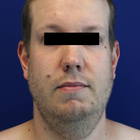
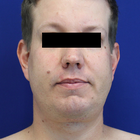
Front view
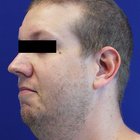
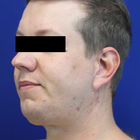
Half-side view
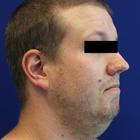
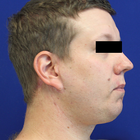
Full-side view
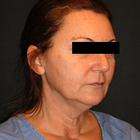
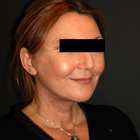
Half-side view
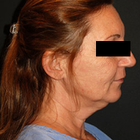
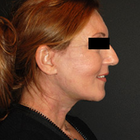
Full-side view
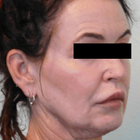
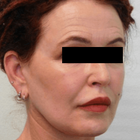
Half-side view
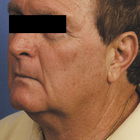
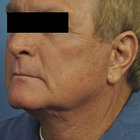
Half-side view
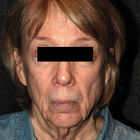
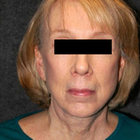
Front view
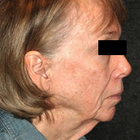
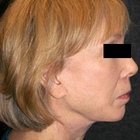
Full-side view
WHY US?
At Medijump, we're making medical easy. You can search, compare, discuss, and book your medical all in one place. We open the door to the best medical providers worldwide, saving you time and energy along the way, and it's all for FREE, no hidden fees, and no price markups guaranteed. So what are you waiting for?

Free

Best Price

Widest Selection

Risk-Free
What you need to know about Neck Lift in Tunisia
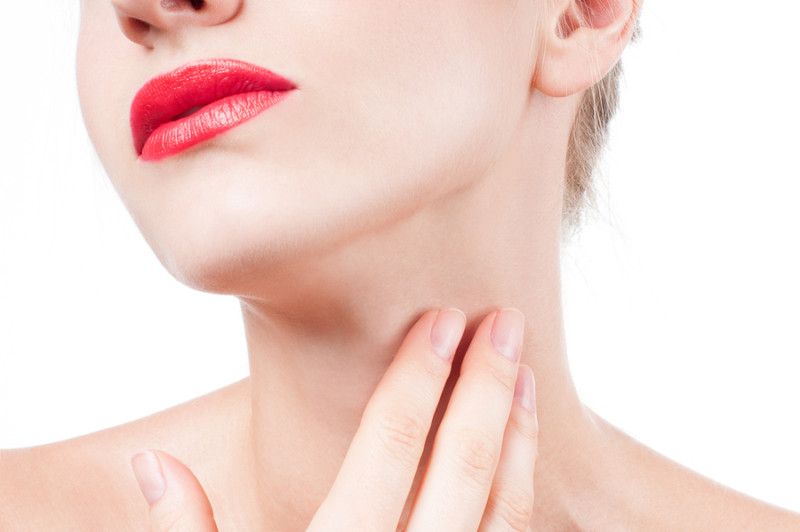
Aging is inevitable as you grow older, the good news is that technological advancements in the medical field have now found exemplary ways to slow down the aging process.
Over time, we lose our youthful contours in our faces and down our necks and these changes in our facial features could be due to old age, gravity, stress, environmental conditions or most likely a combination of all these factors.
A full facelift is usually one solution to rejuvenate your youthful look. However, there are cases whereby a patient’s upper facial area still displays a youthful look but excess wrinkling on the neck’s skin and a double chin are apparent. If your neck area doesn’t align with your upper facial appearance, then undergoing a neck lift might be a solution for you.
A Neck Lift, or its technical term Lower Rhytidectomy, is a cosmetic surgical procedure that enhances visible signs of ageing in your jawline and down your neck. The procedure might be performed on its own or as a part of a facelift.
What does a Neck Lift Procedure Involve?
A neck lift is usually a set of procedures to improve the lower part of your face and is typically done as a part of a facelift. Furthermore, this type of treatment procedure can also treat:
- Jowls - excess fat in the lower face
- Double chin or Turkey wattle - excess fat under the chin
- Loose skin on the neck
- Muscle banding in the neck - creates abnormal lower facial contours
The first step before undergoing the procedure is to consult with your surgeon. It is important that you discuss everything with your surgeon and fully understand the procedure and the result. You should also explore all of your options and alternatives. Keep in mind that a neck lift will not change your fundamental appearance nor will it stop your aging process.
While everyone has the possibility to undergo this type of treatment procedure, the perfect candidates for a neck lift are:
- Nonsmokers
- Individuals who do not have medical conditions that could possibly impair healing
- People with realistic expectations and a positive outlook
During your consultation, your surgeon will also:
- Discuss the type of anesthesia that will be used during the surgery
- Evaluate your general health, as well as any pre-existing health conditions
- Discuss other optional alternatives for the procedure
- Examine and measure your face
- Discuss possible outcomes of the procedure as well as potential risks and complications
In preparation for a neck lift treatment procedure, you may be advised to do the following:
- Avoid certain medications and supplements before your surgery and doing so may reduce the risk of excessive bleeding during the surgery.
- If you smoke, you will need to stop smoking four weeks before and four weeks after your surgery as it is necessary to aid the healing process.
- Eat a healthy diet
On the day of your scheduled surgery, it is advisable that you wear loose and comfortable clothing. Wear a type of clothing that you will not need to pull over your head and neck. In terms of anaesthetics, you may opt for sedation and local anaesthesia or go under general anaesthesia.
During your surgery, if minimal contouring is needed, it can be done with liposuction alone. As for a full neck lift procedure, incisions may be done either under your chin or behind your ears. These incisions will be closed with sutures and drains may also be placed before your wounds are bandaged.
How Long Should I Stay in Tunisia for a Neck Lift Procedure?
A neck lift is an outpatient surgical procedure, however, you also have the option to stay overnight in the hospital. You should remain in the Tunisia for at least 4-5 days after the surgery as there will be scheduled follow-up check-ups with your surgeon to monitor your healing. The sutures will need to be removed after a few days.
What's the Recovery Time for Neck Lift Procedures in Tunisia?
Typically, most people are able to return back to work in ten to fourteen days. In terms of having a physically active lifestyle like playing sports or exercise, you will need to wait at least three weeks or when your doctor gives you the all-clear.
What sort of Aftercare is Required for Neck Lift Procedures in Tunisia?
Note that it will most likely take several weeks to a couple of months for the swelling to fully disappear. You will be given specific instructions as to how to take care of your surgical site and drains, as well as medications to apply or take orally to help with your healing and to reduce the risk of infections. It is very important that you give yourself ample time to heal to get the most benefit from your treatment procedure.
What's the Success Rate of Neck Lift Procedures in Tunisia?
Results for neck lift surgery are normally long-lasting. In general, patients who have gone through a neck lift surgery have been very satisfied with the results.
Although possible risks and complications with this type of procedure are rare and if you experience any of the following symptoms, you will need to consult with your doctor immediately.
- Infection and bleeding
- Adverse reaction to anesthesia
- Scarring
- Allergic reaction
- Changes in sensation
- Hematoma or seroma
- Numbness and tightness in the neck area
Are there Alternatives to Neck Lift Procedures in Tunisia?
For those who are not a fan of surgery, there are non-surgical alternatives that are now available to help you enhance your facial appearance:
- Botox neck lifts - a non-surgical lift that tightens your neck muscles. Botox will be injected into the platysmal bands of your neck. Result typically lasts for three to four months and a touch-up treatment will be required.
- Thermage - also a non-invasive radiofrequency treatment procedure that smoothens and tightens the contours of your neck area, giving you a younger-looking appearance. This procedure can also be used to tighten your sagging stomach, knees, legs, butt, and arm skin.
- Ultherapy - by using ultrasound technology, this type of non-surgical treatment procedure can lift and tighten your loose skin, the result is usually visible in just one treatment.
Whilst the information presented here has been accurately sourced and verified by a medical professional for its accuracy, it is still advised to consult with your doctor before pursuing a medical treatment at one of the listed medical providers
No Time?
Tell us what you're looking for and we'll reachout to the top clinics all at once
Enquire Now

Popular Procedures in Tunisia
Prices Start From $28

Prices Start From $1,945

Prices Start From $167

Prices Start From $672

Recommended Medical Centers in Tunisia for Neck Lift

- Interpreter services
- Translation service
- Religious facilities
- Medical records transfer
- Medical travel insurance
- Health insurance coordination
- TV in the room
- Safe in the room
- Phone in the room
- Private rooms for patients available

- Interpreter services
- Translation service
- Religious facilities
- Medical records transfer
- Medical travel insurance
- Health insurance coordination
- TV in the room
- Safe in the room
- Phone in the room
- Private rooms for patients available

- Interpreter services
- Translation service
- Religious facilities
- Medical records transfer
- Medical travel insurance
- Health insurance coordination
- TV in the room
- Safe in the room
- Phone in the room
- Private rooms for patients available

- Interpreter services
- Translation service
- Religious facilities
- Medical records transfer
- Medical travel insurance
- Health insurance coordination
- TV in the room
- Safe in the room
- Phone in the room
- Private rooms for patients available

- Interpreter services
- Translation service
- Religious facilities
- Medical records transfer
- Medical travel insurance
- Health insurance coordination
- TV in the room
- Safe in the room
- Phone in the room
- Private rooms for patients available

- Interpreter services
- Translation service
- Religious facilities
- Medical records transfer
- Medical travel insurance
- Health insurance coordination
- TV in the room
- Safe in the room
- Phone in the room
- Private rooms for patients available

- Interpreter services
- Translation service
- Religious facilities
- Medical records transfer
- Medical travel insurance
- Health insurance coordination
- TV in the room
- Safe in the room
- Phone in the room
- Private rooms for patients available

- Interpreter services
- Translation service
- Religious facilities
- Medical records transfer
- Medical travel insurance
- Health insurance coordination
- TV in the room
- Safe in the room
- Phone in the room
- Private rooms for patients available

- Interpreter services
- Translation service
- Religious facilities
- Medical records transfer
- Medical travel insurance
- Health insurance coordination
- TV in the room
- Safe in the room
- Phone in the room
- Private rooms for patients available

- Interpreter services
- Translation service
- Religious facilities
- Medical records transfer
- Medical travel insurance
- Health insurance coordination
- TV in the room
- Safe in the room
- Phone in the room
- Private rooms for patients available
Neck Lift in and around Tunisia
About Tunisia
Tunisia is one of the few countries which can cater to everyone and it manages to combine climate, golden beaches, history, and shopping for an “all-around” experience. It has a high standard of healthcare and an excellent reputation for cosmetic surgery. Cosmetic and plastic surgeons are regulated by the Tunisian Ministry of Health and the private clinics have state-of-the-art equipment and English-speaking staff. Tunisia welcomes an ever-increasing number of medical tourists each year, many of whom travel for Neck Lift procedures. Medical Tourists travel from all across the globe, particularly from Europe and neighboring African countries with an inferior healthcare system. Popular medical tourism destinations outside of the capital, Tunis, include Sousse and Mahdia
Popular Parts of Tunisia
- Tunis, the country’s capital, is overflowing with a history that dates from the 4th Century BC. The city is divided into two parts, the old city known as the medina and the new city (or Ville nouvelle in French). Many tourists visit Tunis to see the Archaeological Site of Carthage which is also a UNESCO World Heritage Site. The beautiful Islamic architecture in medina also attracts many tourists to the city.
- Tozeur is known as a home to an enchanting desert oasis, which was a place to rest and refuel for caravans crossing the Sahara. Another main attraction in the city is the medina, where tourists can find lines of beautiful brick-patterned traditional dessert houses. Chott el Djerid, Sahara’s largest salt pan, is a popular day-trip destination.
- Sousse is located on the coast of the Mediterranean Sea. It offers good beaches with a clear blue sea. The city has been fought over by the Romans, Arabs, and Europeans, giving it a colorful history and culture. Sousse Archeological Museum is one of the most visited sites in the country; it has the second largest collection of mosaics in the world.
- Hammamet is the country’s original tourism resort. The city has beautiful gardens filled with oranges, lemons, and other citrus plants. It also has wonderful sandy beaches with crystal clear water. Just like any other city in Tunisia, this city is also brimming with interesting histories. Sites such as The Gafsa Museum and Bardo Museum will give insights about the Islamic faith and culture.
- Douz, also known as “the gateway to the Sahara.” Tourists who want to experience the Sahara Desert come to this city. Take a camel trip or a 4-wheel-drive into the Sahara or see the Museum of the Sahara that has an interesting collection portraying traditional Saharan life.
Weather and Climate in Tunisia
The North of Tunisia has a subtropical Mediterranean climate with mild rainy winters and hot summers. The South and inland areas have a tropical desert climate.
The weather is relatively comfortable throughout the year. Summer starts in June and lasts until August. The average temperature is between 28 °C to 32 °C with July and August being the hottest months. The heat is not as bad on the coast because of the seaside breeze. Be aware that July to September is the jellyfish season.
The heat decreases in autumn and the weather is somewhat more comfortable. There are occasional rain showers in September. The temperature in October can be like summer during day time, but cold at night. October has more rain than September. The season lasts for three months from September to November with an average temperature of around 19 °C to 29 °C.
The weather in winter can be uncertain. The average temperature is between 16 °C and 18 °C, but it can drop to 7 °C at night and below 0 °C in highlands and deserts and a clear sky is rare during this season.
Spring comes in March and the temperature can rise to 20 °C. Mornings and nights are cold; there is still a high probability of rains and thunderstorms at the end of this season.
Getting Around in Tunisia
Tunisia has several international airports. The main airport is Tunic-Carthage International Airport. It has international connections with major European countries and the Middle East. The airport is the hub for Tunisair, Tunisair Express, and Nouvelair. Other airports that have international flights are Enfidha-Hammamet, Monastir Habib Bourguiba, Djerba-Zarzis, and Tabarka-Aïn Draham.
Taxis and buses are available to get to the city center from Tunis Airport. The SNT bus line departs every 30 minutes from the airport, the ticket costs less than 1 TND. There is also the TUT bus which departs every 15 minutes and is more luxurious and expensive.
Airport taxis are available at the airport taxi stand and are usually metered. Always make sure that the driver turns the meter on before riding the taxis. A journey to the city should cost around 5 TND. An extra cost will be added if you have baggage.
Getting around in Tunisia can be done by several transportation modes. Tunisair Express provides domestic flights between Tunis, Tozeur, Djerba, and Gabes. The Train is also available and the national train company in the country is SNCFT that runs modern and comfortable trains from Tunis to Sousse, Sfax, and Monastir. There are three classes of service that tourists can choose. The fare from Tunis to Sousse is between 6 to 10 TND. The long-distance bus is an economical option to travel between big cities such as Tunis, Hammamet, and Nabeul. The buses usually depart every 30 minutes.
Tourist Visas in Tunisia
Citizens of 97 countries (including Australia, China Singapore, the United States, and Russia) can visit and stay in Tunisia for up to 90 days without a visa. Other nationalities are advised to check with their local Tunisia embassy. Tunisia provides an online visa application for nationalities that needs a visa to enter. The eVisa will simplify the process of obtaining travel authorization to enter the country.
Additional Information
-
Local Currency: the local currency is the Tunisian dinar (TND). 1 USD converts to 2.61 TND.
-
Money & Payments: ATMs can be found in most cities and in all tourist areas. Many ATMs have withdrawal limits of 400 TND. Credit cards (MasterCard and Visa) are accepted in major cities and tourist areas. They can be used for shops, car hire, or top-end accommodation. Always make sure to carry cash if you want to travel outside major cities. Tipping is not necessary but will be appreciated.
-
Local Language: Arabic is the official language of Tunisia. French is very common due to the country’s former status as a French protectorate. English is still very limited except in the tourist areas and expensive hotels.
-
Local Culture and Religion: Islam is the major religion with 98% of the population identified as Muslim. There is a small group of Christian and Jews. Since most of the population is Muslim, always remember that the dress code is important in Tunisia.
-
Public Holidays: Tunisia celebrates major Islam holidays. The country hosts several annual festivals throughout the year such as The International Festival of the Sahara, Yasmine Hammamet Festival, and the International Festival of Carthage.
Popular Searches
- Plastic Surgery in Thailand
- Dental Implants in Thailand
- Hair Transplant in Thailand
- Breast Augmentation Thailand
- Gastric Sleeve in Thailand
- Gender Reassignment Surgery in Thailand
- Laser Hair Removal in Bangkok
- Botox in Bangkok
- Dermatology in Bangkok
- Breast Augmentation in Bangkok
- Coolsculpting in Bangkok
- Veneers in Turkey
- Hair Transplant in Turkey
- Rhinoplasty in Turkey
- Stem Cell Therapy in Mexico
- Rhinoplasty in Mexico
- Liposuction in Mexico
- Coolsculpting in Tijuana
- Rhinoplasty in Korea
- Scar Removal in Korea
- Gastric Sleeve in Turkey
- Bone Marrow Transplant in India
- Invisalign in Malaysia
- Plastic Surgery in the Dominican Republic
- Tummy Tuck in the Dominican Republic
- Plastic and Cosmetic Surgery in Poland
- Rhinoplasty in Poland
- Hair Implant in Poland
- Dental Implants in Poland
- IVF in Turkey







